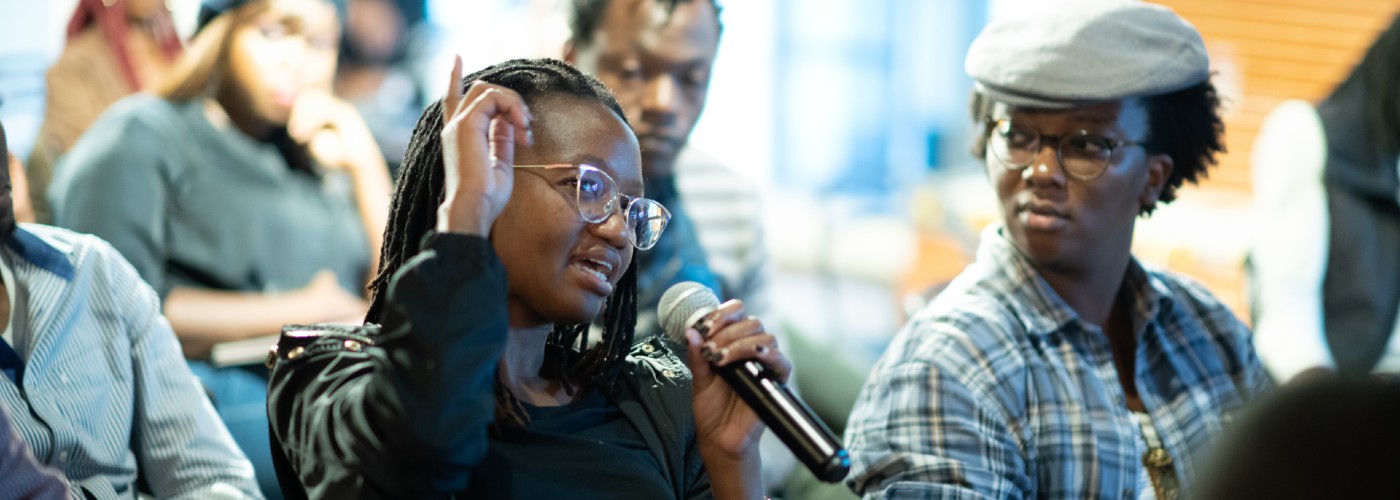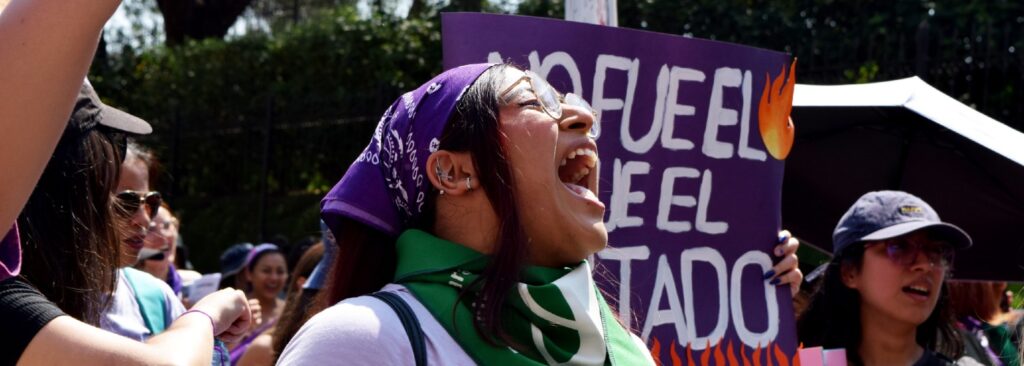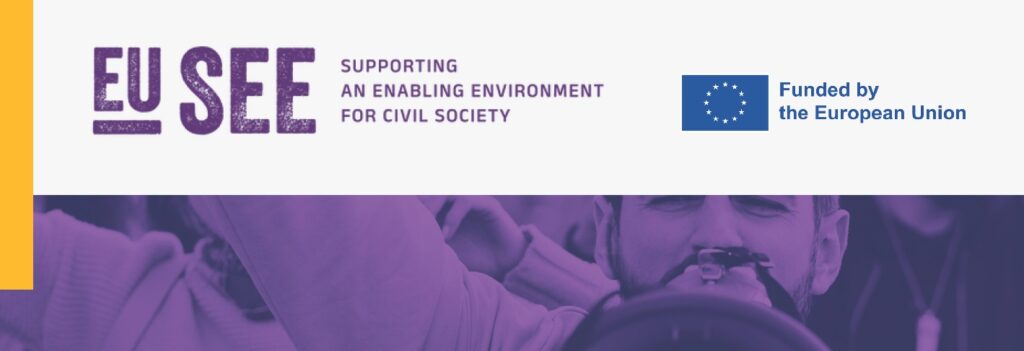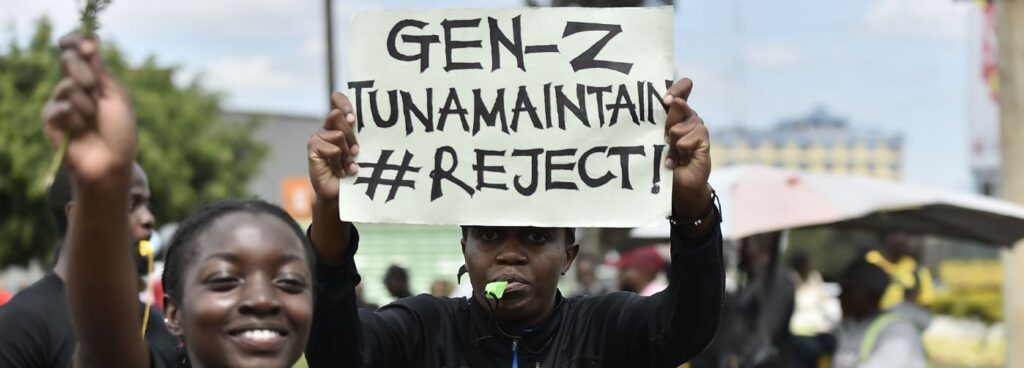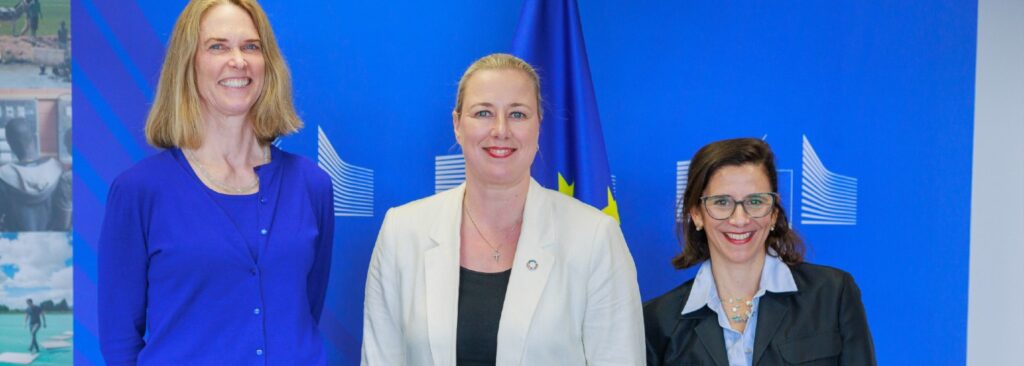The program brings together civil society organizations from 86 countries to monitor their civic space, give early warnings of restrictions, and contribute to responses.
Civil society is under pressure everywhere
Governments are increasingly imposing restrictions on citizens who want to freely express themselves, protest against systemic injustices, and organize to defend fundamental human rights. This is happening not only in countries led by authoritarian governments, but in established democracies as well.
Under these circumstances, coordinated efforts by civil society and their allies to promote an enabling environment for civic space are more important than ever. An enabling environment empowers citizens to exercise their civil and political rights by ensuring human rights are respected and upheld, including in particular, freedom of peaceful assembly, freedom of expression and safe access to information.
How we promote an enabling environment for civil society
EU SEE works with civil society to detect and respond to deteriorating conditions for civil rights and freedoms. One of its components sheds light on both progress and obstacles affecting the ability of civil society to do its work. The other responds to the need for more flexible and timely financial support for civil society in situations of urgency.
The first component, Lot 1, consists of internal and external coordination and support, the EU SEE Early Warning Mechanism, and annual Monitor Index reports. Hivos is in the lead of Lot 1. The second component, or Lot 2, is the EU SEE Flexible Support Mechanism (FSM), which provides funds to build on positive changes or help civil society adapt to negative developments. Oxfam Novib is in the lead of Lot 2.
Lot 1 tools
This component uses two complementary tools to deliver comprehensive and timely data:
- Early Warning Mechanism (EWM): This online platform gathers near-real-time data on events that alter the enabling environment for civil society in participating countries. Our network of national CSO partners submits regular alerts about early signs of restrictions. After verification, selected alerts activate the early warning mechanism, which then triggers advocacy or other responses.
- Country Assessments (Monitoring Index): These detailed annual assessments will integrate the data collected by the Early Warning Mechanism with existing indicators and information gathered by our network of partners through other means. These reports identify the critical trends, challenges, and catalysts that either deteriorate or improve the enabling environment.
Lot 2: Flexible Support Mechanism (FSM)
The Flexible Support Mechanism (FSM) is coordinated by a second consortium composed of Oxfam Novib (Lead), CIVICUS, Protection International, and Urgent Action Fund Latin America. It will help prevent deterioration of civic space in the EU SEE’s 86 partner countries and provide financial resources for (advocacy) responses. It acts in close coordination with and is triggered by the EU SEE Early Warning Mechanism under Lot 1.
The FSM aims to support a wide range of civil society actors and is also designed to release funding quickly for smaller organizations and collectives that are usually excluded from existing sources of funding.
The FSM has six different grant types:
- Emergency Grants
- Sudden Opportunity Grants
- Collective Protection Grants
- National Prevention and Proactive Support Grants
- Core Costs Grants
- Global Prevention and Proactive Support Grants
In addition, the program supports its civil society partners with an interdisciplinary learning agenda and amplifies their voices at a range of arenas through knowledge exchange, policy dialogue, and advocacy.
Who we work with
The program supports local, regional, and national CSOs and networks that bear the brunt of civic space restrictions. They generate and/or gain access to up-to-date information concerning the changing enabling environment in their countries. The program also includes EU actors at partner country and headquarters level, who likewise will have timely access to this information.
The FSM aims to support approximately 690 different civil society actors, including formal and informal CSOs, networks, alliances, collectives, and individuals engaged in defending and strengthening civic space in their countries.
We focus on applicants that urgently need resources and are typically excluded from or unable to access existing sources of funding, including women, youth, BIPOC, LGBTIQ+ people, Indigenous communities, groups protecting the environment and common goods, and particularly self-led groups or organizations.
Where
Africa, Asia, MENA, and Latin America
Period
January 2024 to December 2029
Budget and grant criteria
The entire program budget is €50 million, with €30 million allocated to Lot 1 and €20 million allocated to Lot 2. Grants ranging between €15.000 and €25.000 are allocated to selected grantee partners per year and per country. The selection highly depends on contextual factors and additional criteria to be determined during the inception period.
The FSM forms a major component of the support provided, accounting for 60 percent of the total Lot 2 budget (over €12 million), to be disbursed to civil society through grants. A minimum of 75 percent of grants disbursed will be justified by triggers received through the EWM established under Lot 1.
Partners
Lot 1: CIVICUS, Democracy Reporting International, European Partnership for Democracy, Forus, Transparency International and local civil society partners in each country.
Lot 2: Oxfam Novib, Protection International, CIVICUS and Urgent Action Fund – Latin America and the Caribbean (UAF-LAC)
Donor
Directorate General for International Partnerships (DG INTPA), European Commission

